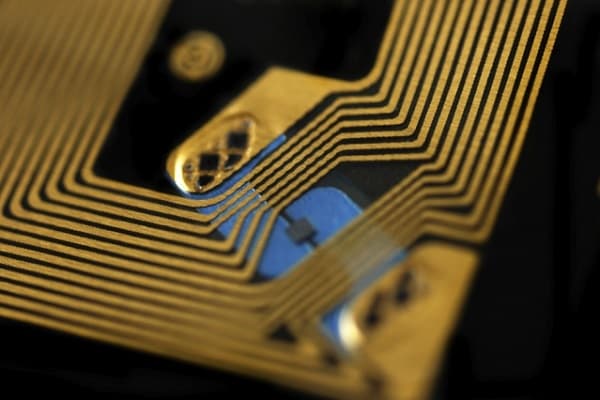MIT Develops Hack-Free RFID Chip That Could Revolutionize Security
Your personal information doesn’t stand threatened any longer. Credits cards and passports will not leak it out. You won’t have to fear being hacked at any sudden instant of your professional or personal life. A research team at Massachusetts Institute of Technology has developed a new radio frequency distribution (RFID) chip that it calls “virtually impossible to hackâ€.

Side-channels attacks in cryptography are based on information gained from the physical implementation of a cryptosystem. Here a given execution of an algorithm leaks only a slight amount of information and so multiple executions are required to get enough leakage to extract a complete secret. That said, systems are still very vulnerable to such attacks. The only way out here is to keep changing the secret keys but then again, a power glitch attack could switch off the RFID chip’s power even before secret keys can be changed.
To combat this and much more, the MIT researchers came up with a two-point solution. One, an on-chip power supply whose connection to the chip circuitry would be nearly impossible to cut. And two, a set of non-volatile memory cells that can store whatever data the chip is working on in case a power failure begins to take place.
To make this high-end chip, exclusive ferroelectric crystals were used. As a crystal, a ferroelectric material contains a three-dimensional lattice of molecules where equal and opposite charges produce electrical polarization due to a separation between them, replicating the dynamics of a capacitor. When an electric field is applied, the cells’ polarization can be aligned in two ways depending on the direction of the field. This represents the two possible values of a bit of information that the chip stores.
Texas Instruments collaborated with the MIT team in manufacturing the chips in large numbers. The research, which was presented at the International Solid-State Circuits Conference in San Francisco this week, was also partly funded by Japanese automotive company Denso.
Source: <a href="https://news.mit.edu/2016/hack-proof-rfid-chips-0203" target="_blank" rel="nofollow noopener noreferrer">Toward hack-proof RFID chips | MIT News | Massachusetts Institute of Technology</a>

Side-channels attacks in cryptography are based on information gained from the physical implementation of a cryptosystem. Here a given execution of an algorithm leaks only a slight amount of information and so multiple executions are required to get enough leakage to extract a complete secret. That said, systems are still very vulnerable to such attacks. The only way out here is to keep changing the secret keys but then again, a power glitch attack could switch off the RFID chip’s power even before secret keys can be changed.
To combat this and much more, the MIT researchers came up with a two-point solution. One, an on-chip power supply whose connection to the chip circuitry would be nearly impossible to cut. And two, a set of non-volatile memory cells that can store whatever data the chip is working on in case a power failure begins to take place.
To make this high-end chip, exclusive ferroelectric crystals were used. As a crystal, a ferroelectric material contains a three-dimensional lattice of molecules where equal and opposite charges produce electrical polarization due to a separation between them, replicating the dynamics of a capacitor. When an electric field is applied, the cells’ polarization can be aligned in two ways depending on the direction of the field. This represents the two possible values of a bit of information that the chip stores.
Texas Instruments collaborated with the MIT team in manufacturing the chips in large numbers. The research, which was presented at the International Solid-State Circuits Conference in San Francisco this week, was also partly funded by Japanese automotive company Denso.
Source: <a href="https://news.mit.edu/2016/hack-proof-rfid-chips-0203" target="_blank" rel="nofollow noopener noreferrer">Toward hack-proof RFID chips | MIT News | Massachusetts Institute of Technology</a>
0
